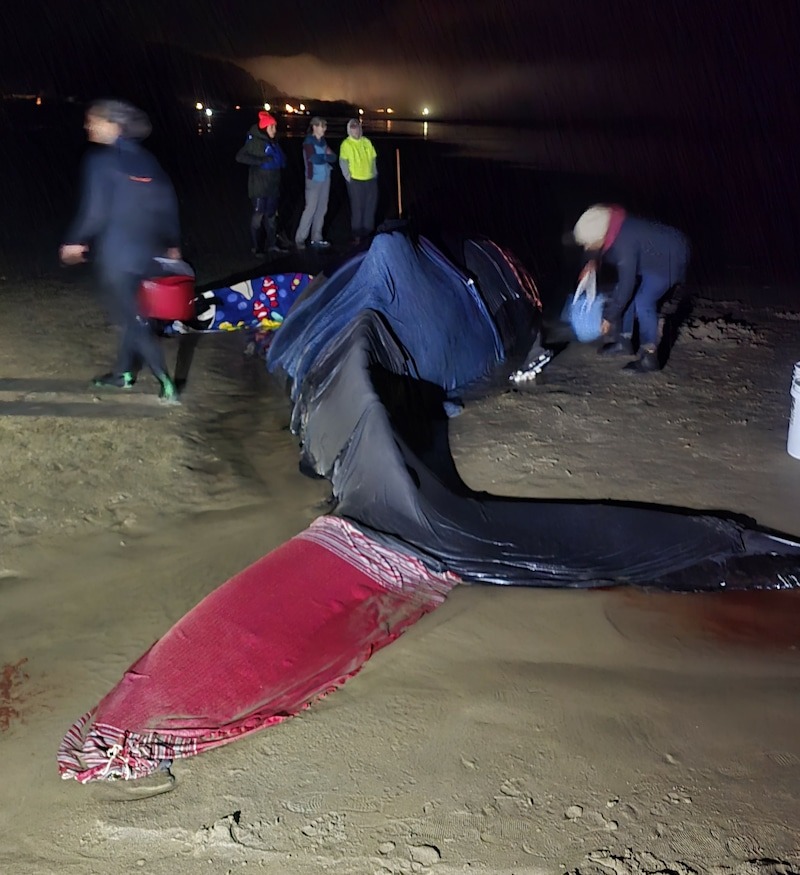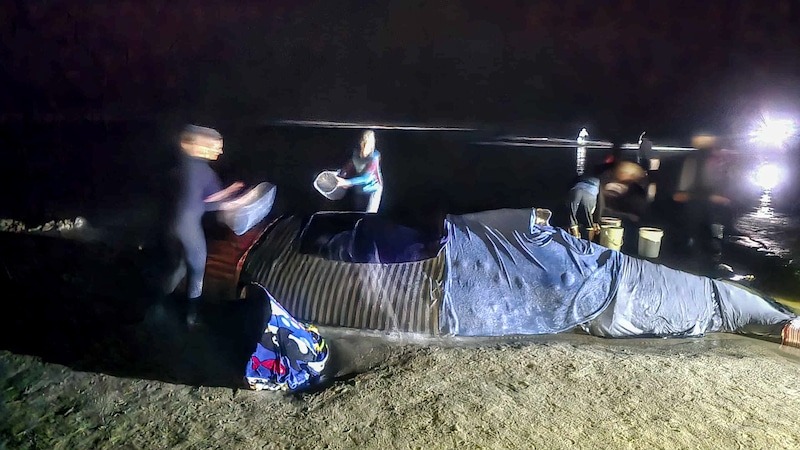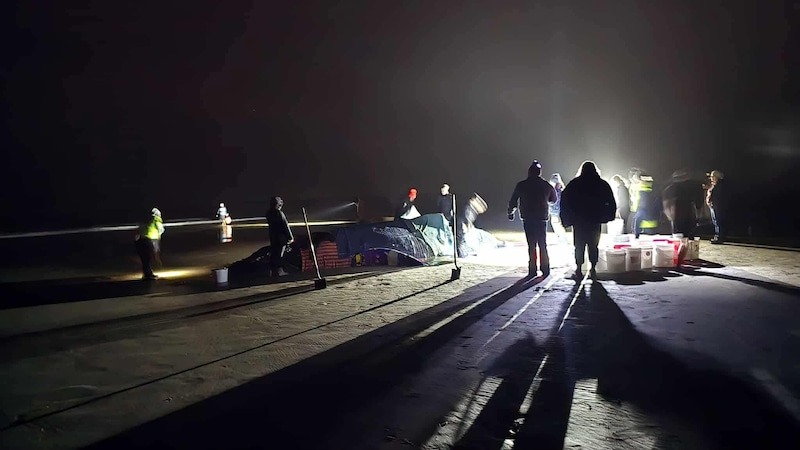A late-night scene unfolded along the shoreline near Yachats as word spread across social media that a live humpback whale had washed ashore Wednesday night. By the early hours of Nov. 16, dozens of people had made their way to the beach hoping to help the struggling animal.
The whale appeared to be caught in rope or fishing line and was unable to free itself. As more people arrived, the crowds became so large that Oregon State Police and other agencies urged the public to leave the area and keep U.S. Highway 101 clear for emergency crews.

Professional responders with the Marine Mammal Stranding Network were expected at sunrise, and with high tide at 9:36 a.m., officials said there was a chance the incoming water could lift the whale back into the ocean.
Throughout the night, volunteers attempted to assist by digging around the whale and splashing it with seawater to keep its skin wet, according to KEZI.
Julie Conrad of the Oregon Coast Killer Whale Monitoring Program shared updates online, emphasizing the need for people to stay back despite their good intentions.
“A humpback whale is stranded and still alive near Yachats,” she wrote. “The Marine Mammal Stranding Network is aware. There are a lot of posts urging people to help, but Oregon State Police have asked the public to stay away. Even well-meaning efforts can cause harm, and being within 100 yards of a whale violates the Marine Mammal Protection Act. These laws exist to protect both the animals and the people trying to help. Please allow room for trained responders to do their work, and leave parking spaces available for them.”

Conrad also reminded the public that while it’s heartbreaking to see a whale in distress, nature has its own cycle.
“If the whale doesn’t survive, its body becomes an important part of the marine ecosystem,” she said. “Whale fall supports countless species and is a vital part of ocean health. It’s hard to set aside our emotions, but understanding the science behind these events is essential.”
Some online commenters suggested pulling the whale seaward using a boat, but Conrad explained why that’s not realistic.
“An adult male humpback can weigh around 80,000 pounds,” she noted. “Towing an animal that size puts extreme strain on its body. In most cases like this, we have to wait and see if the tide gives it enough lift to return to the water on its own.”
She added that if experts determine the whale will not survive, humane euthanasia may become necessary to prevent further suffering.
“These decisions are incredibly difficult,” Conrad wrote. “The people involved are deeply committed to this work and deserve full respect.”













